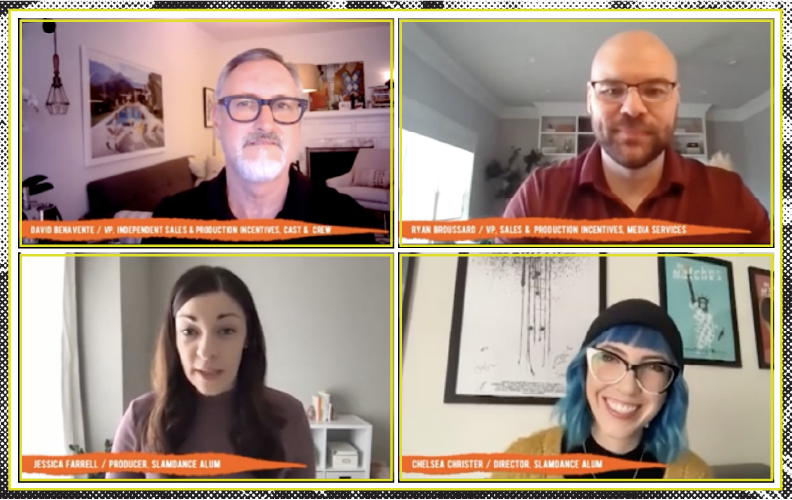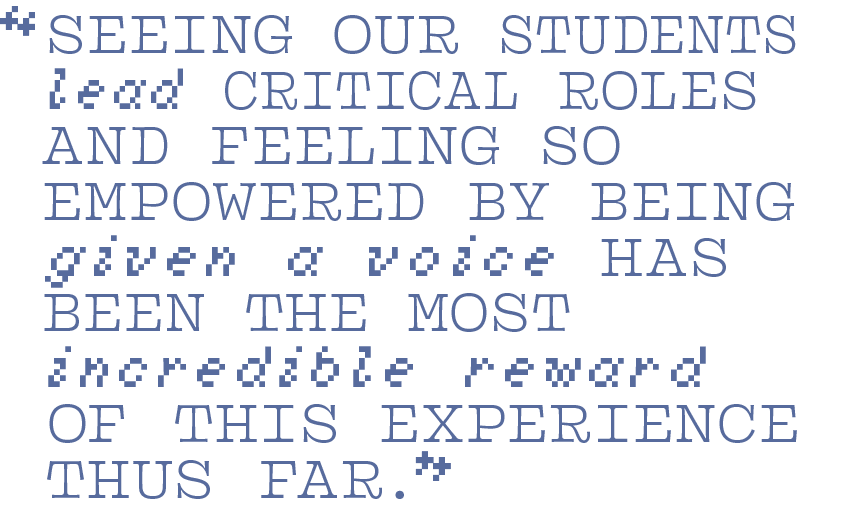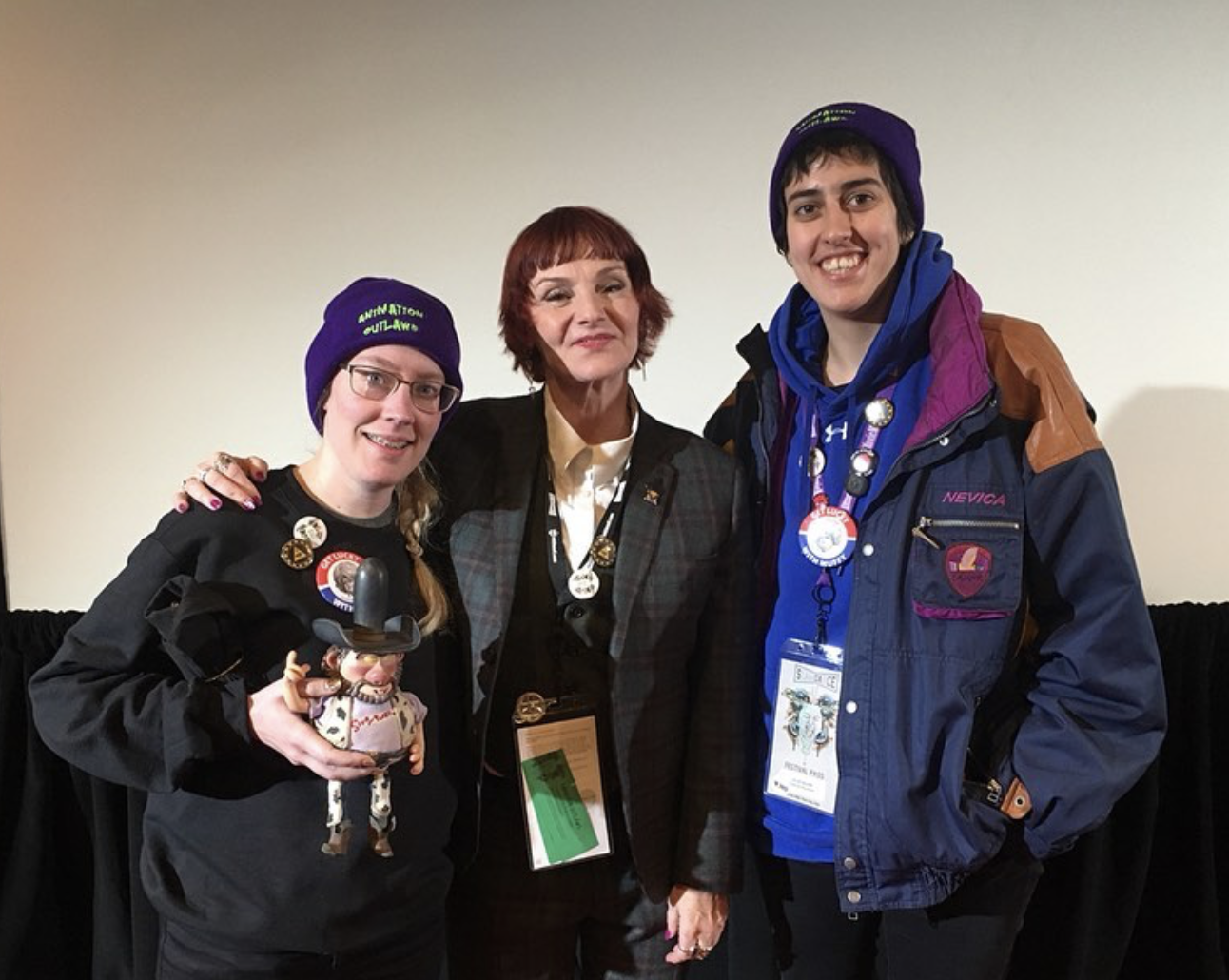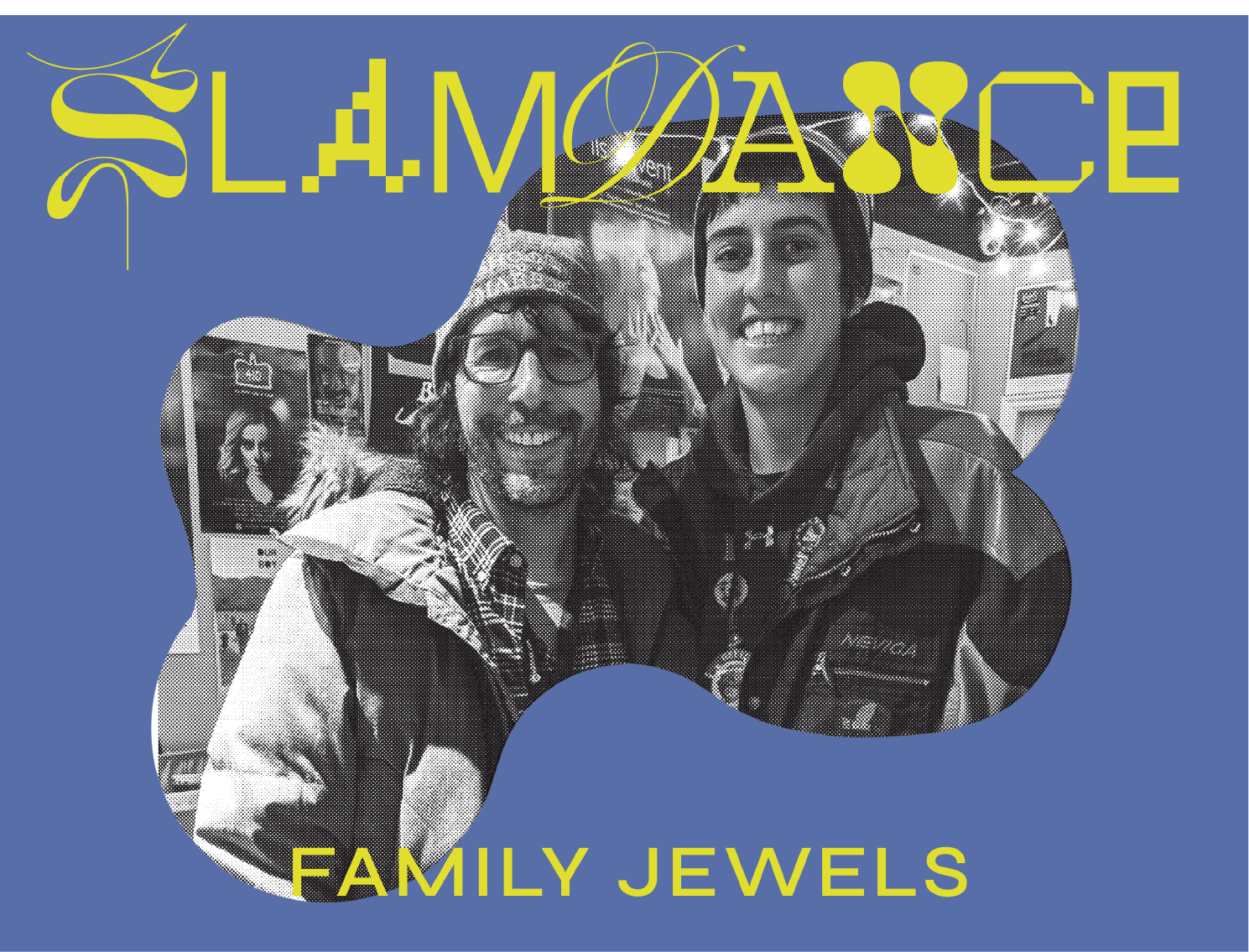Filmmaker Steve Markle (left) with Leila Salari (right).
WRITTEN BY MERRITT MECHAM
When University of Utah alum Leila Salari (‘21) began their journey into the film industry, they struggled to feel confident in their pursuits.
“I used to have a lot of imposter syndrome around being a filmmaker and pursuing art as a career,” they recalled.
But when they worked as a festival assistant at Slamdance 2020, Salari was thrown into a community of filmmakers who were genuinely excited to build connection. One film director sought Salari out at the end of the festival to express high praise of their work.
“That moment sticks with me still to this day,” Salari said. “It made me feel like my imposter syndrome just went away and that I actually did have a chance at being in this industry. I attribute that moment as a real turning point for me in both my life and my film career.”
Slamdance was founded in 1995 by a group of filmmakers who wanted to foster an independent community that could showcase true filmmaking risks, rather than depend on institutions mired in the Hollywood system.
Since 2016, Professors Miriam and Sonia Albert-Sobrino, known professionally as the Also Sisters, have spearheaded a collaboration between the festival and the U’s Department of Film & Media Arts. Their goal has been to connect students with the festival, where they can participate in critical roles and kickstart their professional careers.

Slamdance staff members David Benavente and Ryan Broussard speak with Slamdance alumni Chelsea Christer and Jessica Farrell sharing experience and advice for emerging filmmakers.
“Slamdance really champions independent film and DIY filmmaking,” said the Also Sisters. “They are focused on giving voice to filmmakers who seek to innovate rather than repeat a formula.”
On Slamdance’s side, working with U students strengthens the festival’s ties to Utah.
“Slamdance’s connection to the U is important to our wellbeing and much valued,” stated Peter Baxter, co-founder and president of the festival. “We in turn provide students hands-on experience in creating an annual festival for filmmakers who change our cultural future. It’s truly a wonderful relationship and it’s one of the things I love most about the festival.”
It’s that hands-on experience the festival provides for students that makes this collaboration truly unique. Rather than taking tickets or acting as crowd control, students have the opportunity to be deeply involved in the festival.
This year, alum Rahul Barkley (‘21) worked as a PR Coordinator for the festival after he’d been a Festival Assistant as a student. It was a big job that had him working with press materials, social media, filmmakers, journalists, and PR firms. As a filmmaker, he feels more ready than ever to promote his next film.

“Being Slamdance's PR Coordinator has really emphasized the importance of marketing and promoting your film,” he said. Other students and alumni have worked as Festival Assistants, Production Coordinators, and as Editors and Directors for Slamdance TV.
“Seeing our students lead critical roles and feeling so empowered by being given a voice has been the most incredible reward of this experience thus far,” the Also Sisters expressed.
For their part, students and alumni feel the same way about the Also Sisters and the classes they took in preparation for these roles. Salari emphasized that the Also Sisters’ Producing and Directing course “really taught [them] a lot about filmmaking and the business of film.”
Barkley felt similarly: “The insight on post-production that I attained from the Sisters helped me understand just exactly what my role as PR Coordinator would entail.”
This learning environment continues as current students work at Slamdance.
“Peter Baxter and the Slamdance family are great at creating a positive learning environment in which our students not only get to learn how a festival operates, but also do that in a very welcoming setting,” said the Also Sisters.
This welcoming atmosphere is affirmed in the festival’s “Unstoppable” showcase, which features work from filmmakers with disabilities, and is programmed entirely by disabled artists.
Barkley mentioned that many of the Festival Assistants this year worked on captioning Q&A sessions with the filmmakers. He said that although it requires a significant investment of time, it’s worth it because it’s “an effort to further exemplify Slamdance’s message of accessibility.”
Andrew Patrick Nelson, PhD, Chair of the Department of Film & Media Arts, looks forward to continuing this relationship.
“Slamdance is one of the department’s closest partners in the community, and certainly the partner most closely aligned with our own goal of supporting cutting edge film and media making,” he said. “We’re proud to support it.”
As for Salari, they’re already looking forward to next year’s Slamdance: “I get excited every fall when the festival comes around again!” ▪

(Left to right) Unknown, Leila Salari and director of “Animation Outlaws” Kat Alioshin





